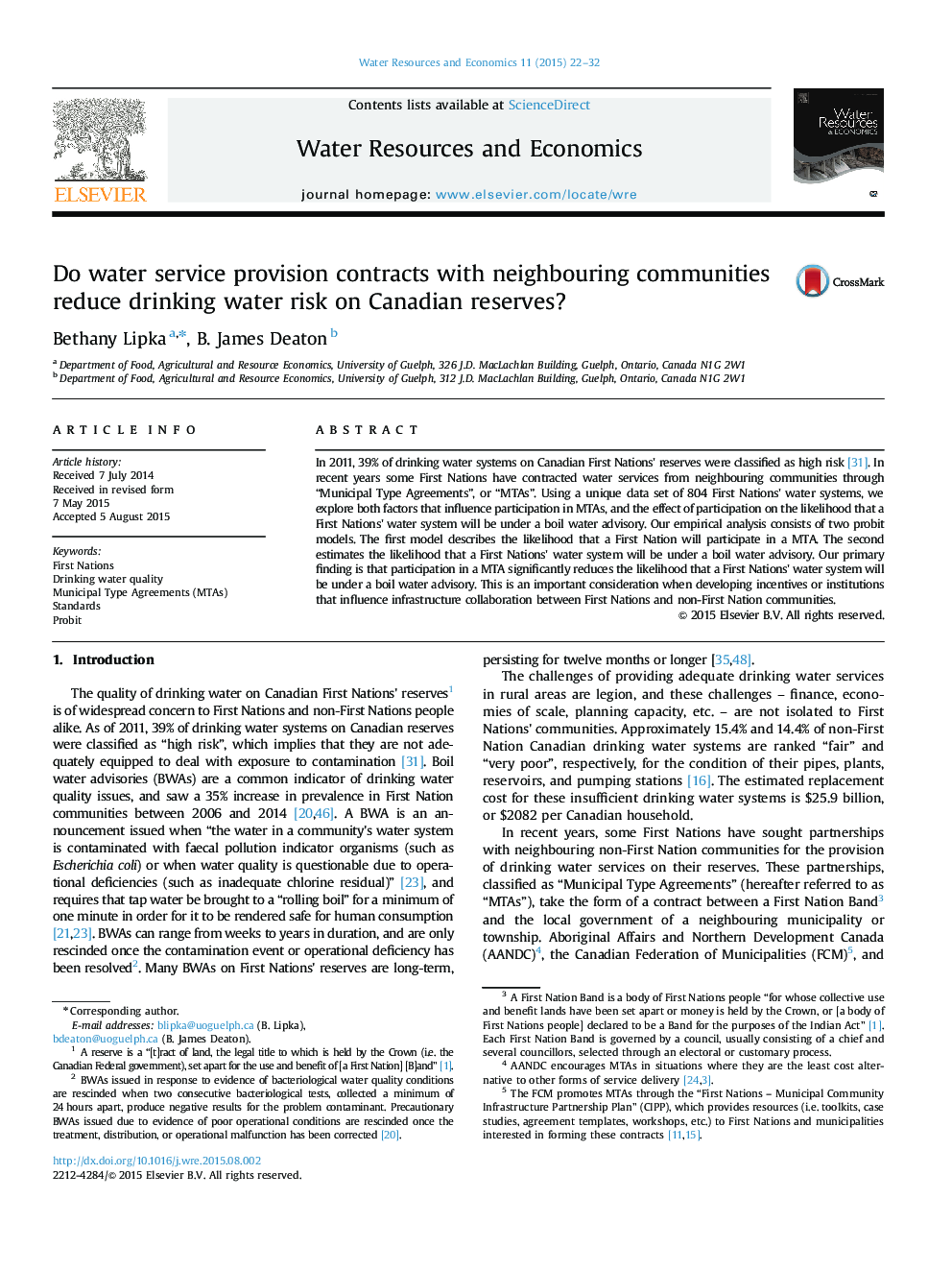| Article ID | Journal | Published Year | Pages | File Type |
|---|---|---|---|---|
| 988244 | Water Resources and Economics | 2015 | 11 Pages |
In 2011, 39% of drinking water systems on Canadian First Nations' reserves were classified as high risk [31]. In recent years some First Nations have contracted water services from neighbouring communities through “Municipal Type Agreements”, or “MTAs”. Using a unique data set of 804 First Nations' water systems, we explore both factors that influence participation in MTAs, and the effect of participation on the likelihood that a First Nations' water system will be under a boil water advisory. Our empirical analysis consists of two probit models. The first model describes the likelihood that a First Nation will participate in a MTA. The second estimates the likelihood that a First Nations' water system will be under a boil water advisory. Our primary finding is that participation in a MTA significantly reduces the likelihood that a First Nations' water system will be under a boil water advisory. This is an important consideration when developing incentives or institutions that influence infrastructure collaboration between First Nations and non-First Nation communities.
